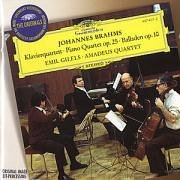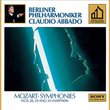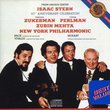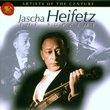| All Artists: Johannes Brahms, Emil Gilels Title: Brahms: Piano Quartet, Ballades / Amadeus Quartet Members Wishing: 0 Total Copies: 0 Label: Deutsche Grammophon Release Date: 1/23/1996 Genre: Classical Styles: Chamber Music, Forms & Genres, Ballads, Historical Periods, Modern, 20th, & 21st Century Number of Discs: 1 SwapaCD Credits: 1 UPC: 028944740721 |
Search - Johannes Brahms, Emil Gilels :: Brahms: Piano Quartet, Ballades / Amadeus Quartet
 | Johannes Brahms, Emil Gilels Brahms: Piano Quartet, Ballades / Amadeus Quartet Genre: Classical
Back in those awful days before recordings, there was an entire industry devoted to making chamber reductions of large orchestral pieces, because if you wanted to hear the latest symphony, you had to play it yourself at ho... more » |
Larger Image |
CD DetailsSynopsis
Amazon.com Back in those awful days before recordings, there was an entire industry devoted to making chamber reductions of large orchestral pieces, because if you wanted to hear the latest symphony, you had to play it yourself at home. Recordings changed all that, and now we have just the opposite: a trend towards playing chamber music in arrangements for large orchestra. Many listeners, then, may be familiar with this piano quartet from Schoenberg's wacky orchestral transcription, which features all kinds of instruments (like xylophone and celesta) that would have given Brahms a heart attack. In any case, here's an excellent performance of the original work, and it's really fun to listen to both versions. Check them out and see what you think. --David Hurwitz Similar CDsSimilarly Requested CDs
|
CD ReviewsAbsolutely Wonderful Stuff Craig Matteson | Ann Arbor, MI | 07/05/2002 (5 out of 5 stars) "This recording of the Piano Quartet Opus 25 is one of the best. Full of vigor, passion, and power. The piano and strings are matched in their conception of a big tone even in the quiet passages. You can hear many different interpretations of this work, but I don't know of any that are actually better. This is one of my favorites, but I admit to being a Gilels fan and biased towards anything he ever did.The Opus 10 Ballades are youthful works that fans of Brahms always love and young pianists love to learn. Well, this recording of these pieces will give them a great model to shoot for.The recording sounds great and is definitely worth owning." The best performance of Gilels in his life Hiram Gomez Pardo | Valencia, Venezuela | 05/07/2004 (5 out of 5 stars) "First at all. I've always thought that Gilels is a superb musician altough something cold to my taste. His readings of Rachmaninov lack that humanism that should be in your mind your soul and your fingers when you play that romantic composer. I make this previous statement because when I decided to acquire this record in those Lp's days , in 1980., I did it because the two only references that I knew still didn't fill my requests. So it happened the incredible. What happened in that recording evening? I don't know but Gilels was enraptured and possesed by Dionsyan inspiration and The Amadeus quartet in their best. The result was an amazing performing, from the first bar to the last one. Every note is played with a comittment like the same Casals would have been present in the recording studio. What kind of playing! Personally I think this is the definitive version of this quartet op. 25. Don't think I've tried. I tried with Serkin-Bush, I've bought Edwin Fisher and I found in New York Badura Skoda Janigro Fournier and all those recordings were well made but without enthusiasm and even an atom of sparkling light. Many people don't seem understand that Brahms' shyness and all those comentaries about his craft , would make him the first on the line in Beethoven's heritage in his time. For me, (and this is a personal consideration), Brahms suffered a personal crisis knowing the huge responsability upon his shoulders when he presented his first Symphony. And the fact that seems prove this statement is that the first symphony is Op.48. This long speech allows me conclude that in the chamber music's mood he seemed to feel less presure and he , in certain way he felt with a major liberty to compose. Remeber also that the chamber music was a more intimate music and not for all the great audiences. In this sense, even to understand the musical language of Johannes Brahms, please go and listen first all his chamber music. You'll find such kind of hidden treasures such the clarinet's quintets and his two strings quintets, for example, and then go for meeting the symphonic Brahms. And if you had some doubt about the quality and great musicality of this genere in Brahm's music, go and explore how much of his music was played by Casals in Prades. Doesn'it tell you anything? Back to the quartet op. 25, you'll find a young Brahms, in the peak of his craft. And consider this recordings among the best performers of this important sign Deutsche Grampohone. The sound in CD is fabolous. Don't miss that version for any reason. It's essential for you to have it in your personal collection. And then you 'll forget the others versions you had before. Believe me." Clasping hands katja_r | 05/20/2001 (5 out of 5 stars) "This performance of Johannes Brahms' (1833-1897) Klavierquartett Nr. 1 is among my favourite. With equal proficiency, Mr Emil Gilels (1916-1985) and the Amadeus Quartet express both the power and delicacy of this complex piece. From a technical perspective, I don't know what separates this from other recordings. When I listen to this, though, I am enthralled by the range of emotions. The notes by Mr Peter Cossé explain the importance of Deutsche Grammophon's signing of the Russian pianist during the Cold War. "In those days, in the late '60s and early '70s, a contract between an artist from the Soviet Union and a Western label was a sensational event in cultural diplomacy" Perhaps it is this cultural significance which inspired the performers. If you are interested in "one of the most significant pianists of the 20th century", in chambre music by one of the most significant composers of the 19th century, or in romantic music played extremely well, this CD will interest you."
|

 Track Listings (8) - Disc #1
Track Listings (8) - Disc #1









